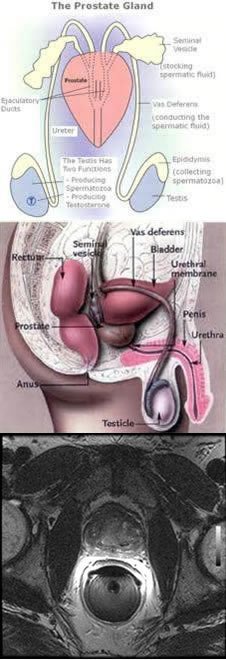What do you need to know about prostate cancer?
Overview by Mr Alan Doherty
Consultant Urological Surgeon
Queen Elizabeth Hospital Birmingham University Hospitals Birmingham NHS Foundation


Prostate cancer is a condition with causes considerable anxiety, loss of quality and even quantity of life. Prostate cancer is curable if detected early enough; in other words, while it is still contained in the prostate.
If a tablet were ever to be developed that would make the prostate vanish, it would probably be taken by all men after completing a family. This is because the only symptom someone without a prostate would notice is a dry orgasm. The prostate’s main function is to help in fertility; it does not have a major role in continence, nor in erectile function.
This tablet would eradicate prostate cancer deaths.
In reality, prostate cancer is common, particularly in elderly men, and many patients are not diagnosed until it is too late to have a curative treatment. Many patients will have what are known as metastases; in other words, the cancer will have spread out of the prostate into either lymph nodes or bones. Although cure is no longer possible in these situations, the cancer is controllable. Common medicines to do this include ‘hormone’ treatment. This works by preventing the action of the male hormone testosterone. Chemotherapy and radiotherapy are also often used and these treatments work well for many years; that is why many men die with, rather than because of prostate cancer. Some men, however, do succumb to the disease.
Unfortunately, the side effects to these treatments can be significant, and that is why some men opt for early detection, using PSA as a triage test, so that they can be offered curative treatment, such as surgery or radiotherapy. PSA is an excellent measure of whether or not the prostate is ‘happy’. An ‘unhappy’ prostate needs further investigations, such as a multiparametric MRI, to see what the likely problem might be.
Men are concerned about the side effects of treatments to cure them. The common ones include worsening urinary and bowel symptoms, incontinence, impotence, loss of libido, depression and risk of another cancer. Modern treatments, together with surgical skill, experience and competence make these less likely than patients often think. Often, patients can choose the treatment that suits them best. It is helpful to be clear about priorities, as the treatments vary in what they can deliver and in their side effect profile: for example, I see many patients who express a preference for the certainty of surgery, recognising the need to carefully choose their surgeon for best outcomes. Equally, the continuous development of focal therapy technology and advances in imaging provide a strong option for men prioritising low impact treatment.

Prostate matters is a not for profit organisation that is committed to providing free expert advice about prostate issues from leading Clinical Authorities
PROSTATE MATTERS
FOLLOW US
Copyright Disclaimer: We try to acknowledge copyright as appropriate. If we have used something without acknowledging copyright, this is inadvertent. Please let us know by emailing info@prostatematters.co.uk

